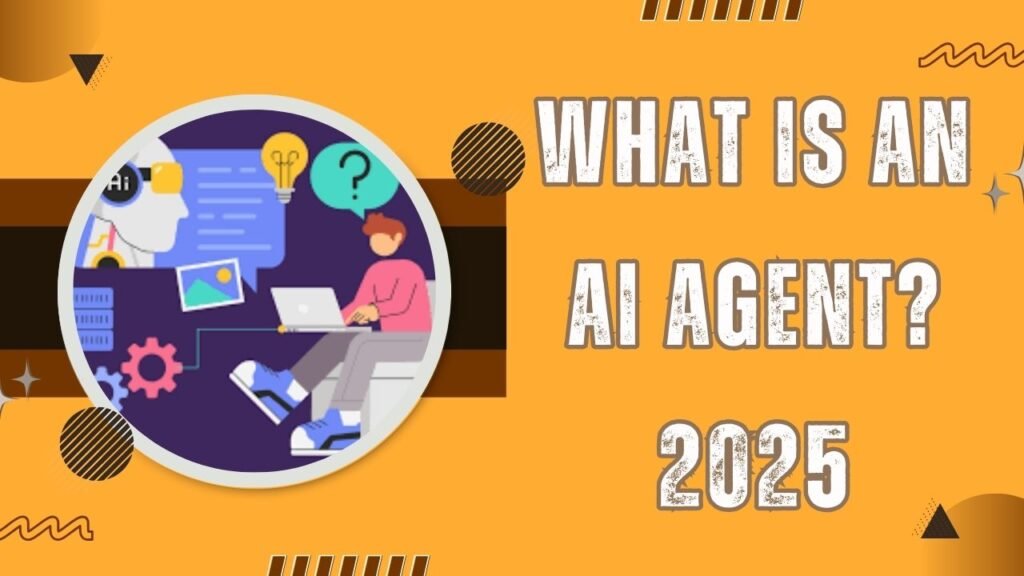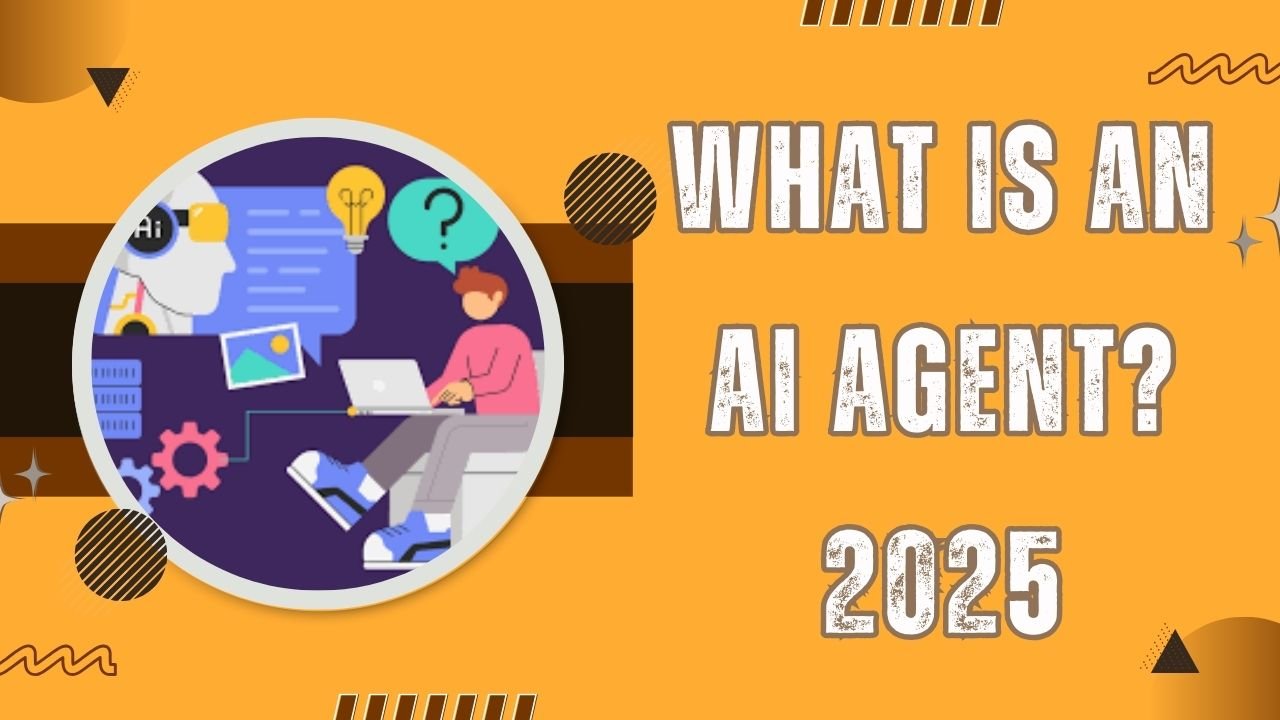Artificial Intelligence (AI) agents are rapidly transforming the technological landscape. With their ability to simulate human-like intelligence and automate complex tasks, AI agents have become an integral part of industries, personal devices, and more.
This blog explores the concept of AI agents, their functionalities, types, applications, and future potential in 2025.
Table of Contents
Introduction: Redefining Intelligence Through AI Agents
Imagine a world where digital entities work tirelessly to assist, analyze, and optimize, with no need for breaks or downtime. These entities, known as AI agents, embody the pinnacle of artificial intelligence technology. They are not mere programs but dynamic systems capable of learning, reasoning, and decision-making. In 2025, AI agents have moved beyond being tools; they are partners in productivity, creativity, and innovation.
This blog breaks down the essence of AI agents to help you understand their growing significance in the modern world.
What Is an AI Agent?
An AI agent is a software-based entity that perceives its environment, processes information, and performs tasks to achieve specific goals. Unlike traditional software, AI agents operate autonomously, meaning they can take action without direct human intervention.
Key Characteristics of AI Agents
- Autonomy: Operates without constant user input.
- Perception: Gathers and interprets data from the environment.
- Decision-Making: Chooses actions based on objectives and information.
- Learning: Adapts and improves performance over time using machine learning.
- Interactivity: Engages with users and systems through natural language or APIs.
Alwalahub .com Instagram Password AI Generator Tool 2025: A Comprehensive Guide
How AI Agents Work
AI agents function through a structured process involving perception, reasoning, action, and feedback.
| Step | Description |
|---|---|
| Perception | The agent collects data from sensors, APIs, or user inputs. |
| Reasoning | Processes the data using algorithms to make decisions or predictions. |
| Action | Executes tasks such as sending alerts, controlling devices, or making updates. |
| Feedback | Monitors outcomes and adjusts strategies for better performance. |
Types of AI Agents
AI agents can be categorized based on their capabilities and scope of operation.
1. Reactive Agents
- Operate based on current input without memory.
- Example: Chatbots that answer predefined questions.
2. Proactive Agents
- Plan actions and predict outcomes based on historical data.
- Example: Virtual assistants like Siri or Alexa.
3. Adaptive Agents
- Learn from interactions and improve over time.
- Example: Recommendation engines on streaming platforms.
4. Collaborative Agents
- Work alongside humans or other agents to achieve goals.
- Example: AI tools in project management.
Comparison of AI Agent Types
| Type | Memory | Capabilities | Examples |
|---|---|---|---|
| Reactive Agents | None | Immediate responses | Basic customer support bots |
| Proactive Agents | Limited | Planning and predictions | Smart home systems |
| Adaptive Agents | Extensive | Learning and evolving | Personal finance apps |
| Collaborative Agents | Varies | Teamwork with humans/agents | AI in collaborative design tools |

Applications of AI Agents in 2025
AI agents have found utility across diverse sectors, revolutionizing operations and improving outcomes.
1. Business Operations
- Automating routine tasks such as data entry and reporting.
- Enhancing customer service through AI chatbots.
2. Healthcare
- Assisting in diagnosis by analyzing medical data.
- Monitoring patient health through wearable devices.
3. Education
- Personalizing learning experiences for students.
- Automating administrative tasks for educators.
4. Transportation
- Powering autonomous vehicles with decision-making capabilities.
- Optimizing logistics and delivery operations.
5. Entertainment
- Recommending personalized content on streaming platforms.
- Creating AI-driven characters in video games.
Examples of AI Agent Applications
| Sector | Application | Example |
|---|---|---|
| Business | Automating invoices | AI-based accounting tools |
| Healthcare | Remote patient monitoring | Smart health trackers |
| Education | Virtual tutors for personalized learning | AI learning platforms |
| Transportation | Self-driving cars | Autonomous ride-sharing services |
| Entertainment | AI-generated music or art | Creative AI tools |
Advantages of AI Agents
- Increased Efficiency: Automates repetitive tasks, saving time.
- Scalability: Can handle growing workloads without additional resources.
- Personalization: Delivers tailored experiences in real-time.
- Cost Savings: Reduces operational expenses by minimizing human intervention.
- Continuous Operation: Works 24/7 without fatigue.
Dongly Tech .in Instagram Password Finder: Real or Fake? 2025
Challenges in Implementing AI Agents
Despite their benefits, AI agents pose certain challenges.
- Data Privacy Concerns: Handling sensitive data raises privacy risks.
- Bias and Fairness: Poorly trained models can lead to biased outcomes.
- High Development Costs: Creating advanced AI agents requires significant investment.
- Integration Issues: Adapting existing systems to accommodate AI agents can be complex.
- Ethical Concerns: Questions around autonomy and decision-making accountability.
Future of AI Agents in 2025 and Beyond
The trajectory of AI agents is set to reshape industries and redefine interaction paradigms.
Emerging Trends
- Hyper-Personalization: AI agents offering ultra-customized experiences.
- AI-Powered Creativity: Assisting in content creation, design, and innovation.
- Edge AI: Running AI agents locally on devices for faster responses.
Potential Impact
- Enabling smarter cities through automated infrastructure management.
- Revolutionizing healthcare with predictive and preventive solutions.
- Reducing environmental impact by optimizing energy use.
Key Considerations When Using AI Agents
| Aspect | Consideration |
|---|---|
| Ethical Use | Ensuring transparency and accountability in decision-making. |
| Data Security | Implementing robust measures to protect user data. |
| User Acceptance | Designing intuitive interfaces to encourage adoption. |
| Continuous Learning | Regular updates to improve agent performance and adaptability. |
Conclusion: The Dawn of AI Collaboration
AI agents are no longer a vision of the future; they are an active force driving innovation in 2025. From streamlining business processes to enhancing personal experiences, these intelligent systems are shaping how humans interact with technology. However, their implementation demands ethical vigilance, robust security measures, and a commitment to continuous improvement.
As we advance, the role of AI agents will expand further, making them indispensable allies in navigating the complexities of modern life. Whether you’re an individual exploring the benefits of virtual assistants or an organization integrating automation, understanding AI agents is the first step toward leveraging their transformative potential.
I’m Pratiksha, your guide to the digital world. I review tech and debunk internet trends.
